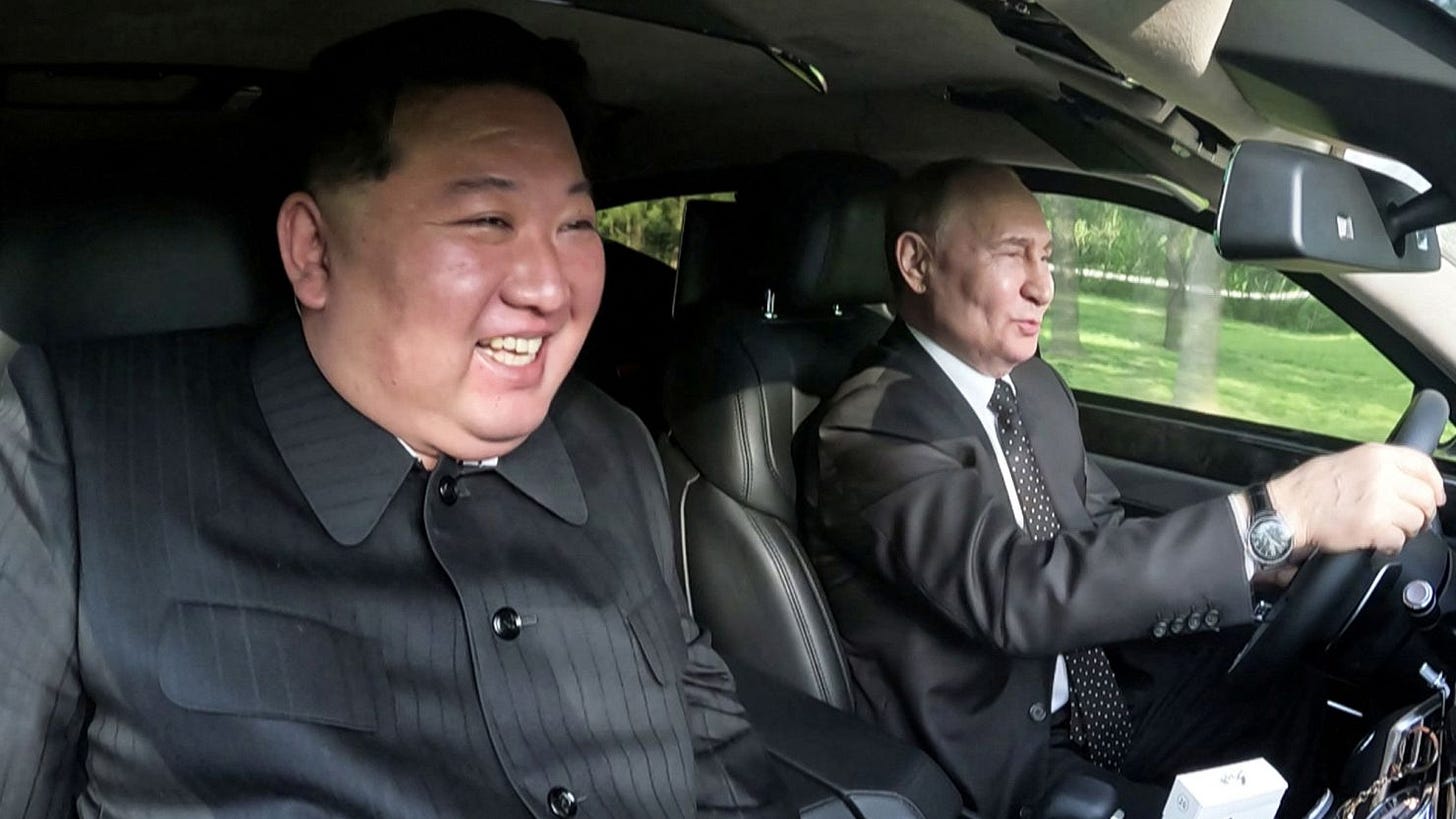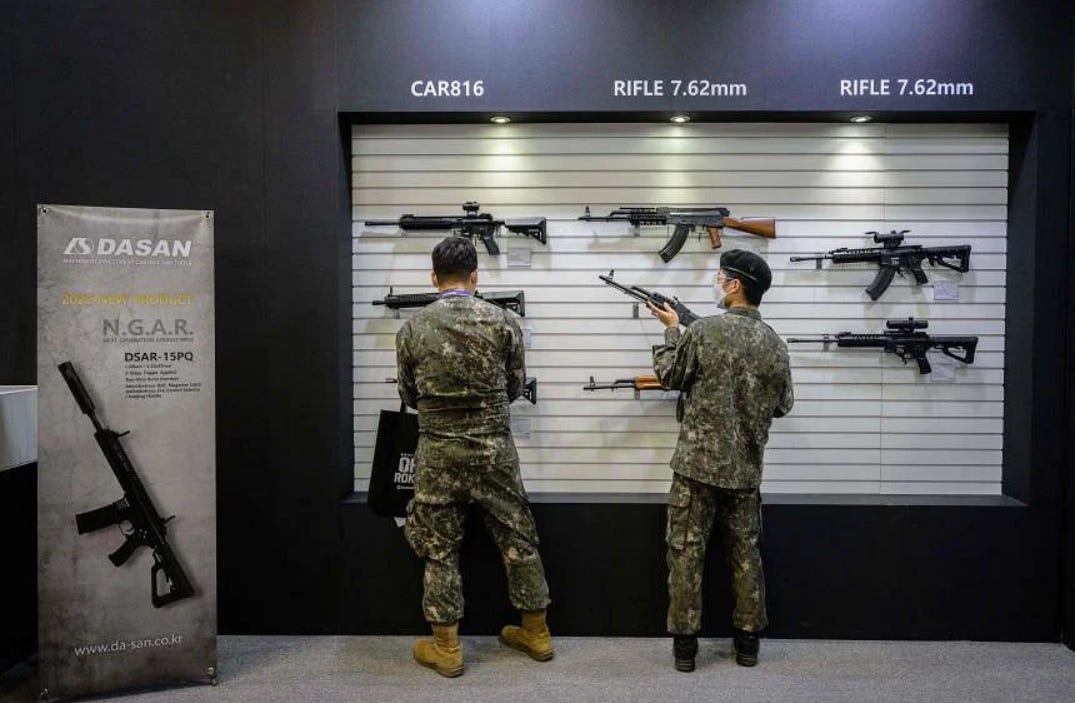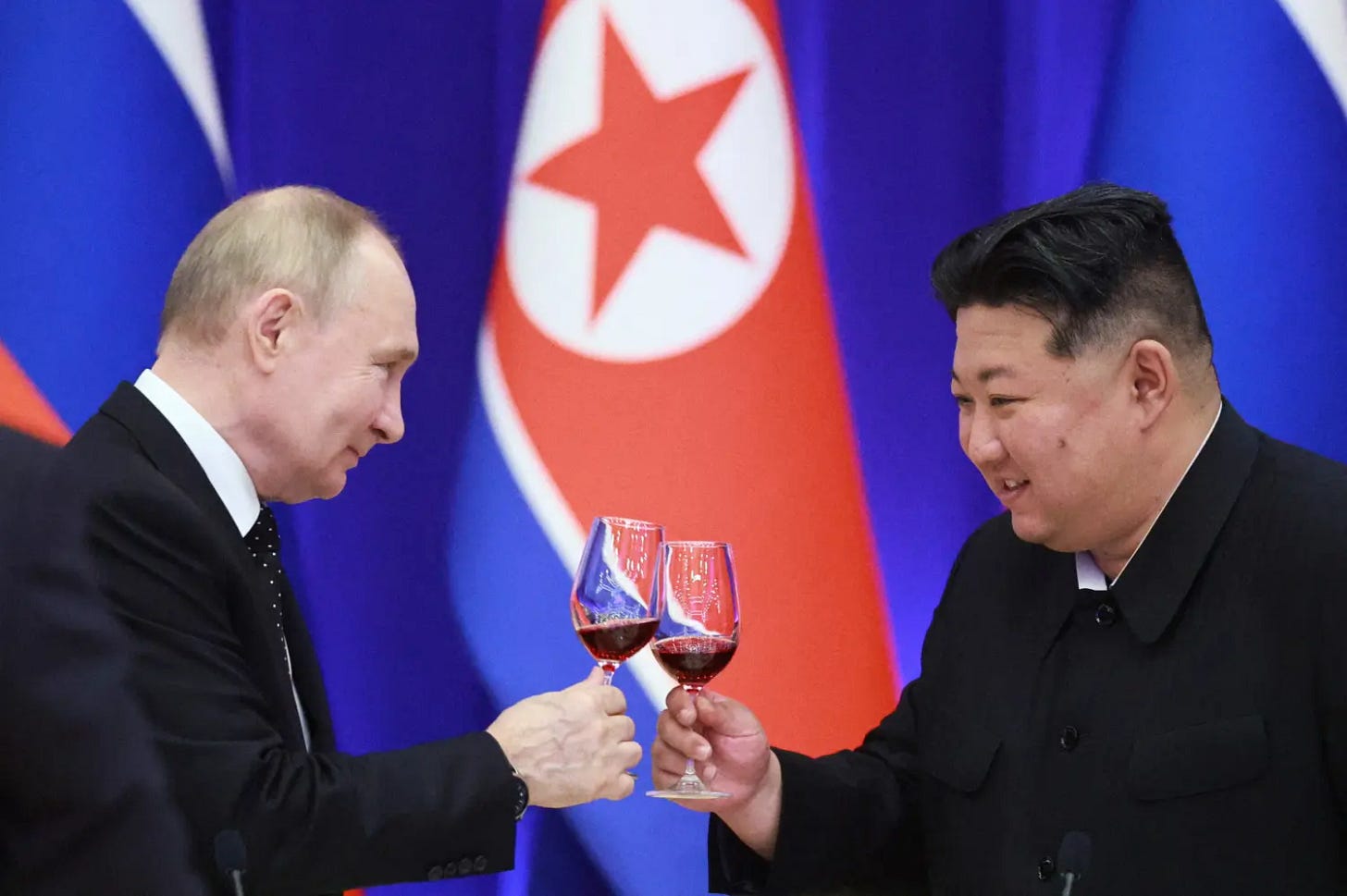Putin Goes Rogue
Was Putin's visit to North Korea a geo-political masterstroke, or a misstep? Foreign Policy graduate Percy Spender answers all.
Written by foreign policy graduate Percy Spender, find more of his content on 𝕏 @PercySpender
This week Vladimir Putin visited Kim Jung-Un in North Korea, his first state visit to the Hermit Kingdom since 2000. The meeting served as a follow-up to the talks held between the two in Vladivostok last September, signalling a deepening of ties as Russia continues its Asia pivot since being ejected from the Western economy. The outcome of Putin’s visit was a surprisingly mutual defence pact, where each nation agreed to support one another during times of foreign aggression.
For North Korea, the new pact changes the global chessboard. Where previously the United States, under Trump, could call bluff about their missile strike capability, now Kim Jong will be able to rely on a solider military partnership the next time America applies pressure. This realignment of the geopolitical balance will further accelerate the ongoing escalation between China and America in the Asia-Pacific.
Depending on how this new relationship between Pyongyang and Moscow materialises, if North Korea enjoys a bolstering of military technology from Russia it will force South Korea, if they wish to maintain the balance of power on the Korean peninsula, to seek the same backing from the United States. Such an outcome will be a great pleasure for Russia as American weaponry will be drawn away from Ukraine. This is significant because Ukraine has been making great use of HIMARS and ATACMS weapons to make deep strikes into Russia targeting key infrastructure. Coupled with the fact that recently more Western countries have given Ukraine’s blessing to use their weapon donations for strikes on Russia outside of contested Ukrainian territory.
As for China, who are currently locked into a serious escalation spiral with the United States, they will be forced to respond to military build-up in Korea. The year has been dominated by stories of China conducting very complex and large-scale military exercises mimicking beach landings and naval blockades of Taiwan. China has stated that the military exercises will persist following numerous antagonising military exercises from the United States and allies. The United States-led drills have involved mainly the Philippines, along with the Australian Airforce, which suggests an integration effort between the three countries. By doing this, America is attempting to contain China and limit their influence in the South China Sea, which will hamper their ability to project power further across the Pacific. If this escalation wildfire were to spread to Korea, and the United States increased its military presence and supply to the South in order to counter Russia and the North, China would be forced to respond. Exactly how a response would manifest is hard to predict.
On the other hand, South Korea may be willing to break their commitment of abstaining from arming Ukraine as a retaliation against Russia. Chang Ho-jin, prominent South Korean National Security Adviser, announced that the government will undergo a review on exactly that. This is not in any way an unprecedented concept, throughout 2023 NATO used numerous third-party nations to circumvent South Korea’s commitment to not arm Ukraine directly. NATO deems South Korea, as the world’s ninth largest arms exporter, a critical nexus in its military production network helping compete against Russia’s disproportionate production capacity. If South Korea were to reverse its policy this could grant Ukraine vital resources in solving its severe shell hunger across the Donbas front. For years we have been pelted with reports of Russia’s significant artillery power advantage in the war, if Ukraine were to even up this disparity, they may be able to halt Russia’s constant incremental gains. Putin has warned that South Korea providing arms would be a big mistake, while US secretaries of State, Antony Blinken, said the US will consider various measures in response to the pact. If an arms race were triggered on the Korean Peninsula, Russia would see some export profit from its massive ratcheting up of its military-industrial complex.
In all, this appears to have been a great geopolitical play by Putin, as the North Korea deal could leave America spread too thin between Ukraine and the Pacific, which may in turn trigger America to to rethink its support of Ukraine and instead fully commit its attention to giving China and solidifying the containment policy. If the United States further withdrew from the coalition supporting Ukraine, other hesitant European nations, namely Germany, would follow suit leaving France and the United Kingdom to take the reins in leading the charge against Russia. But of course, these two nations are on the eve of high-stakes elections in the coming weeks, a factor which will greatly determine their relations with Russia and their commitment to Ukraine’s war effort. This is a fascinating state of geopolitical boards where many relationships are in flux and many changes to geopolitical landscapes are possible over the rest of the year.




